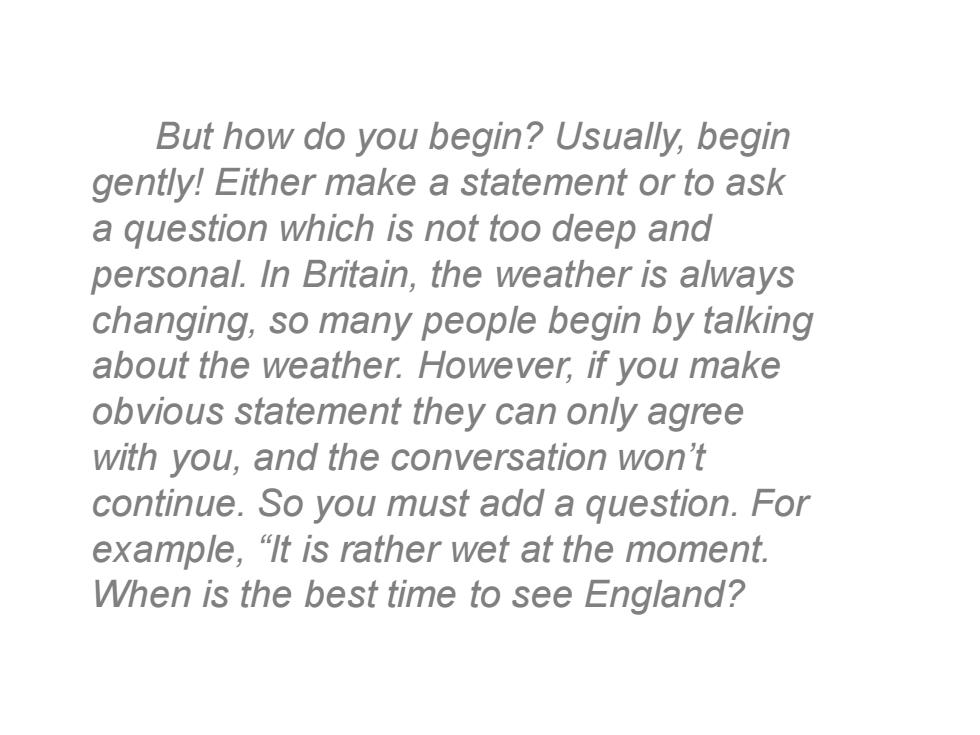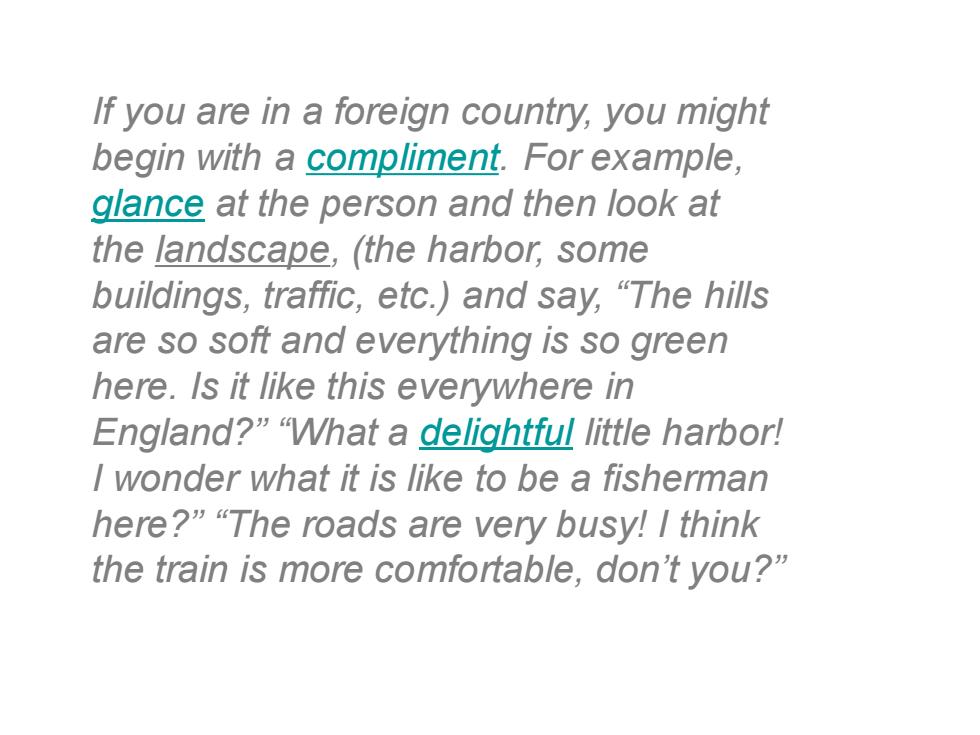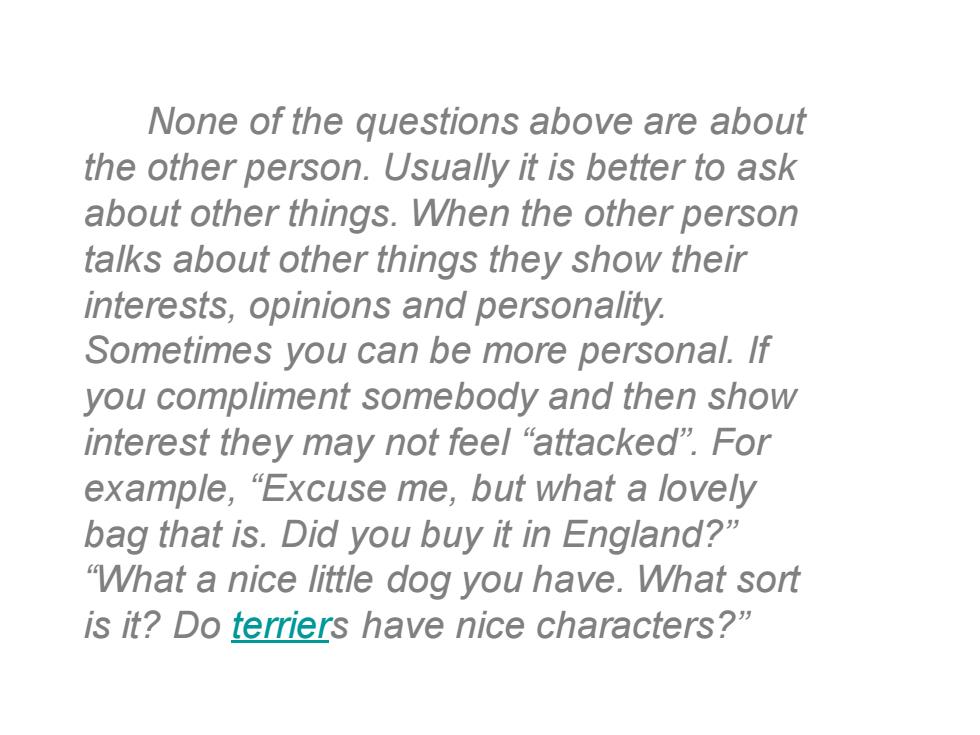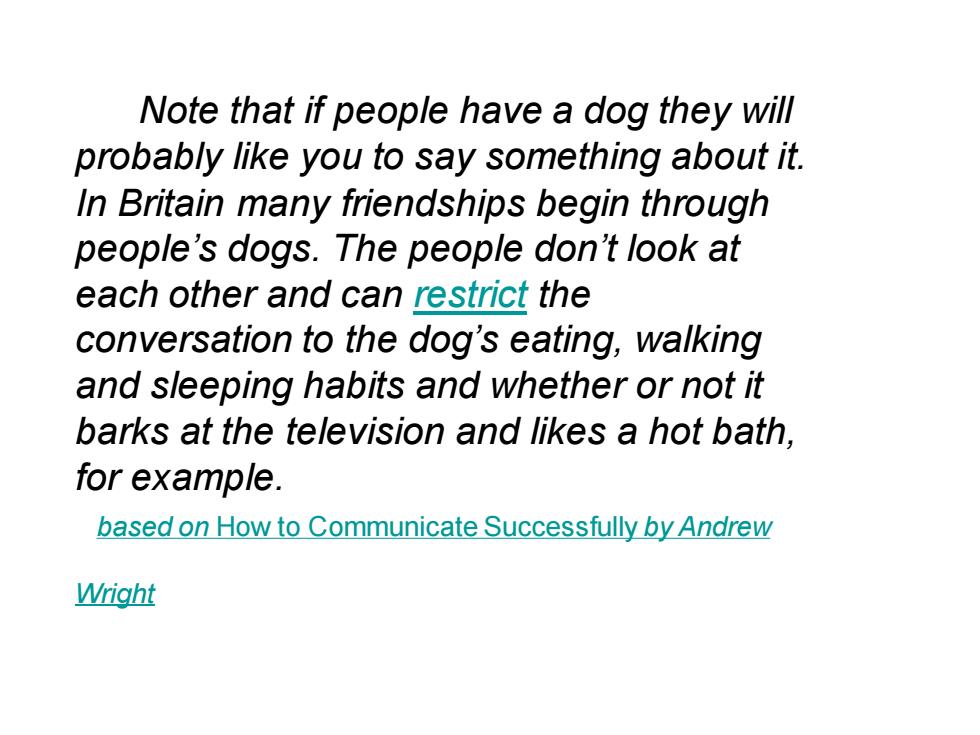
But how do you begin?Usually,begin gently!Either make a statement or to ask a question which is not too deep and personal.In Britain,the weather is always changing,so many people begin by talking about the weather.However,if you make obvious statement they can only agree with you,and the conversation won't continue.So you must add a question.For example,"It is rather wet at the moment. When is the best time to see England?
But how do you begin? Usually, begin gently! Either make a statement or to ask a question which is not too deep and personal. In Britain, the weather is always changing, so many people begin by talking about the weather. However, if you make obvious statement they can only agree with you, and the conversation won’t continue. So you must add a question. For example, “It is rather wet at the moment. When is the best time to see England?

If you are in a foreign country,you might begin with a compliment.For example, glance at the person and then look at the landscape,(the harbor,some buildings,traffic,etc.)and say,"The hills are so soft and everything is so green here.Is it like this everywhere in England?""What a delightful little harbor! I wonder what it is like to be a fisherman here?""The roads are very busy!I think the train is more comfortable,don't you?
If you are in a foreign country, you might begin with a compliment. For example, glance at the person and then look at the landscape, (the harbor, some buildings, traffic, etc.) and say, “The hills are so soft and everything is so green here. Is it like this everywhere in England?” “What a delightful little harbor! I wonder what it is like to be a fisherman here?” “The roads are very busy! I think the train is more comfortable, don’t you?

In each of these examples there is a question.It would be difficult to answer the question with“Yes”or “Wo”as the question invites personal opinion and information.Of course,it would be possible not ask a question at all:then wait!However,you need to be brave and just hope that the other person will speak!
In each of these examples there is a question. It would be difficult to answer the question with “Yes” or “No”, as the question invites personal opinion and information. Of course, it would be possible not ask a question at all: then wait! However, you need to be brave and just hope that the other person will speak!

None of the questions above are about the other person.Usually it is better to ask about other things.When the other person talks about other things they show their interests,opinions and personality. Sometimes you can be more personal.If you compliment somebody and then show interest they may not feel "attacked".For example,"Excuse me,but what a lovely bag that is.Did you buy it in England?" "What a nice little dog you have.What sort is it?Do terriers have nice characters?
None of the questions above are about the other person. Usually it is better to ask about other things. When the other person talks about other things they show their interests, opinions and personality. Sometimes you can be more personal. If you compliment somebody and then show interest they may not feel “attacked”. For example, “Excuse me, but what a lovely bag that is. Did you buy it in England?” “What a nice little dog you have. What sort is it? Do terriers have nice characters?

Note that if people have a dog they will probably like you to say something about it. In Britain many friendships begin through people's dogs.The people don't look at each other and can restrict the conversation to the dog's eating,walking and sleeping habits and whether or not it barks at the television and likes a hot bath, for example. based on How to Communicate Successfully by Andrew Wright
Note that if people have a dog they will probably like you to say something about it. In Britain many friendships begin through people’s dogs. The people don’t look at each other and can restrict the conversation to the dog’s eating, walking and sleeping habits and whether or not it barks at the television and likes a hot bath, for example. based on How to Communicate Successfully by Andrew Wright